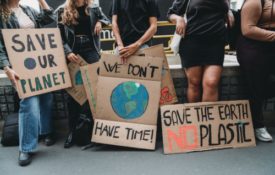-

Water-Scarce Cultures Value Long-Term Thinking More Than Their Water-Rich Neighbors Do
Even in modern environments with easy access to water, cultural responses shaped by historical water scarcity still influence individuals’ decision-making processes.
-

Can Shifting Social Norms Help Mitigate Climate Change?
An interdisciplinary team of researchers reports on how social norms can be harnessed to bring about collective climate action and policy change.
-

Video: Observing Earth Day With Psychological Science
In recognition of Earth Day 2022, we have collected and summarized flash talks that discuss the effects of nature-assisted rehabilitation on mental health, the risks of air pollution exposure during childhood, the motivations behind climate-related discussions, and more.
-
Teaching Current Directions in Psychological Science
“How Psychological Science Can Influence Climate-Change Attitudes and Actions“
by David G. Myers and “Individual Differences in Navigating“ by Gil Einstein and Cindi May. -
How ‘Solution Aversion’ and Global Warming Prescriptions Polarize the Climate Debate
The New York Times: Anyone eager to understand, and move past, the deep political polarization around global warming would do well to explore the findings in “Solution aversion: On the relation between ideology and motivated
-
Why Misinformation Sticks
When false information is released, often a retraction or correction will be issue to fix the mistake. Even then, many people will still believe the false information, and despite an organization’s best efforts, the false

